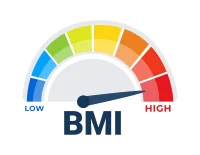A recent study confirms that metabolic and bariatric surgery is a largely safe and effective option for individuals with severe obesity, including those with a body mass index (BMI) of 70 kg/m² or higher. The findings are published in Obesity Surgery: The Journal of Metabolic Surgery and Allied Care.
The research analysed data from 84 patients with BMIs exceeding 70 kg/m² who underwent metabolic or bariatric surgery. While these patients had a higher likelihood of emergency department visits, they experienced low rates of complications and reoperations within the first 30 days after surgery. The study shows that serious postoperative complications within 30 days were as low as 0.7%, an acceptable surgical risk.
The researchers reviewed demographics, postoperative outcomes, and changes in BMI and weight, evaluating weight loss at 30 days, six months, and one year post-surgery. They also assessed emergency department visits, readmissions, and reoperations during the first year.
As per study findings, patients exhibited low rates of serious complications (0.7%) within 30 days, supporting the safety of surgery in this high-BMI group. Significant and sustained weight loss was observed up to one year post-surgery. While emergency department visits were relatively high, reoperation rates were low.
These findings demonstrate that high BMI should not deter providers from considering bariatric and metabolic surgery. These procedures are effective, and institutions should prioritise further research to expand care for this demographic.
Patients with extreme obesity represent a growing demographic that requires specialised care. Despite being considered high-risk due to their BMI, these findings confirm that metabolic and bariatric surgery is generally safe and effective for them.
Although higher BMIs are associated with increased surgical risk, no universally accepted BMI cutoff exists to exclude patients from bariatric surgery. The study underscores the robust weight loss achieved by patients in this category and highlights the importance of offering this treatment to those in need.
These findings provide hope to individuals grappling with severe obesity and its health consequences. It also reinforces confidence among researchers, clinicians, and patients in the safety and efficacy of metabolic surgery.
The researchers emphasise the need for further studies to better understand the unique challenges faced by patients with extreme obesity and to optimise their care.
Source: Pennington Biomedical Research Center
Image Credit: iStock










